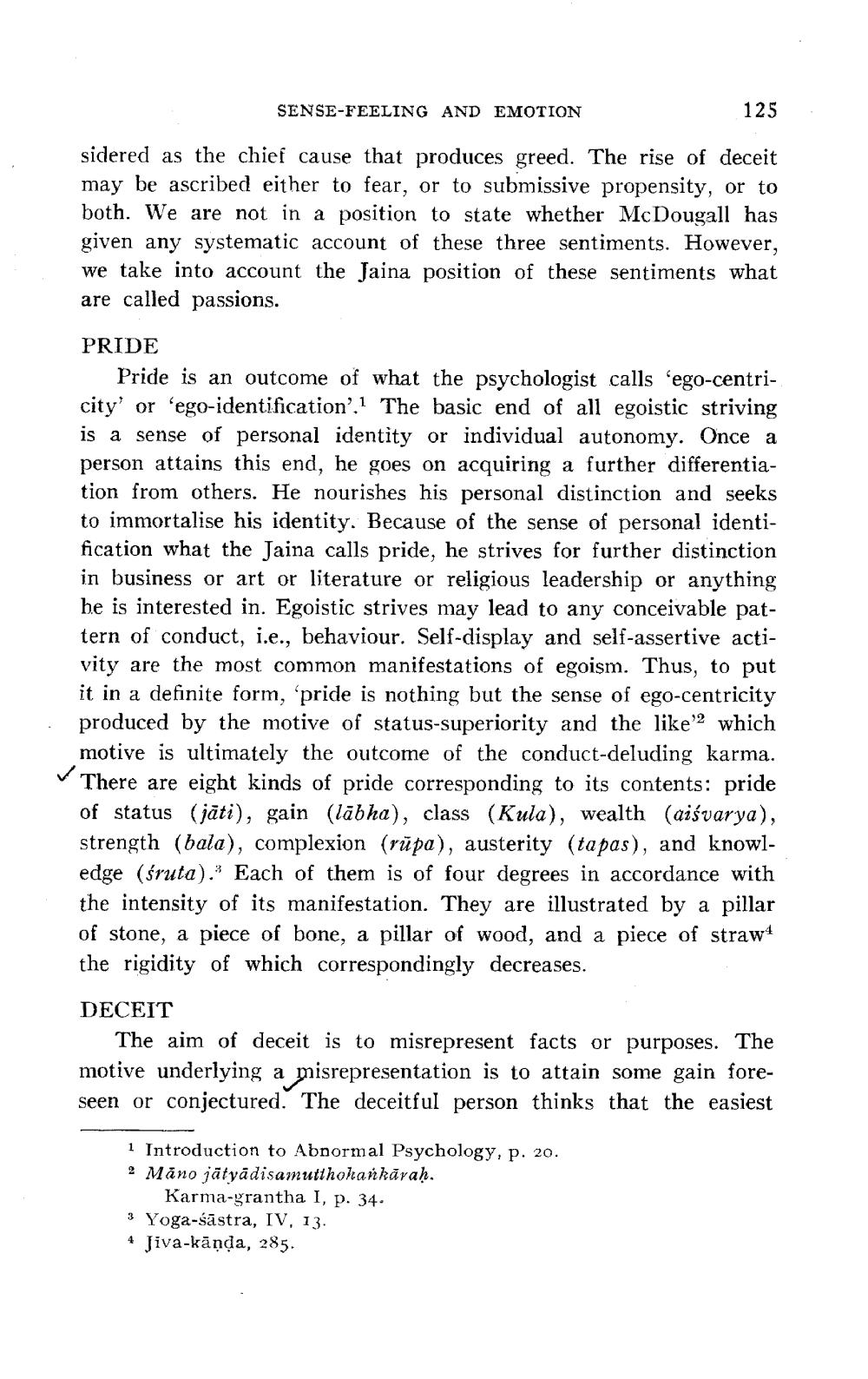________________
SENSE-FEELING AND EMOTION
125
sidered as the chief cause that produces greed. The rise of deceit may be ascribed either to fear, or to submissive propensity, or to both. We are not in a position to state whether McDougall has given any systematic account of these three sentiments. However, we take into account the Jaina position of these sentiments what are called passions.
PRIDE
Pride is an outcome of what the psychologist calls 'ego-centricity' or 'ego-identification'.1 The basic end of all egoistic striving is a sense of personal identity or individual autonomy. Once a person attains this end, he goes on acquiring a further differentiation from others. He nourishes his personal distinction and seeks to immortalise his identity. Because of the sense of personal identification what the Jaina calls pride, he strives for further distinction in business or art or literature or religious leadership or anything be is interested in. Egoistic strives may lead to any conceivable pattern of conduct, i.e., behaviour. Self-display and self-assertive activity are the most common manifestations of egoism. Thus, to put it in a definite form, 'pride is nothing but the sense of ego-centricity produced by the motive of status-superiority and the like' which motive is ultimately the outcome of the conduct-deluding karma.
There are eight kinds of pride corresponding to its contents: pride of status (jāti), gain (lābha), class (Kula), wealth (aiśvarya), strength (bala), complexion (rūpa), austerity (tapas), and knowledge (śruta). Each of them is of four degrees in accordance with the intensity of its manifestation. They are illustrated by a pillar of stone, a piece of bone, a pillar of wood, and a piece of straw the rigidity of which correspondingly decreases
DECEIT
The aim of deceit is to misrepresent facts or purposes. The motive underlying a misrepresentation is to attain some gain foreseen or conjectured. The deceitful person thinks that the easiest
1 Introduction to Abnormal Psychology, p. 20. 2 Mano jātyādisamutthohankāraḥ.
Karma-grantha I, p. 34. 3 Yoga-śāstra, IV, 13. 4 Jiva-kānda, 285.
a.kanata, IV.1, p




